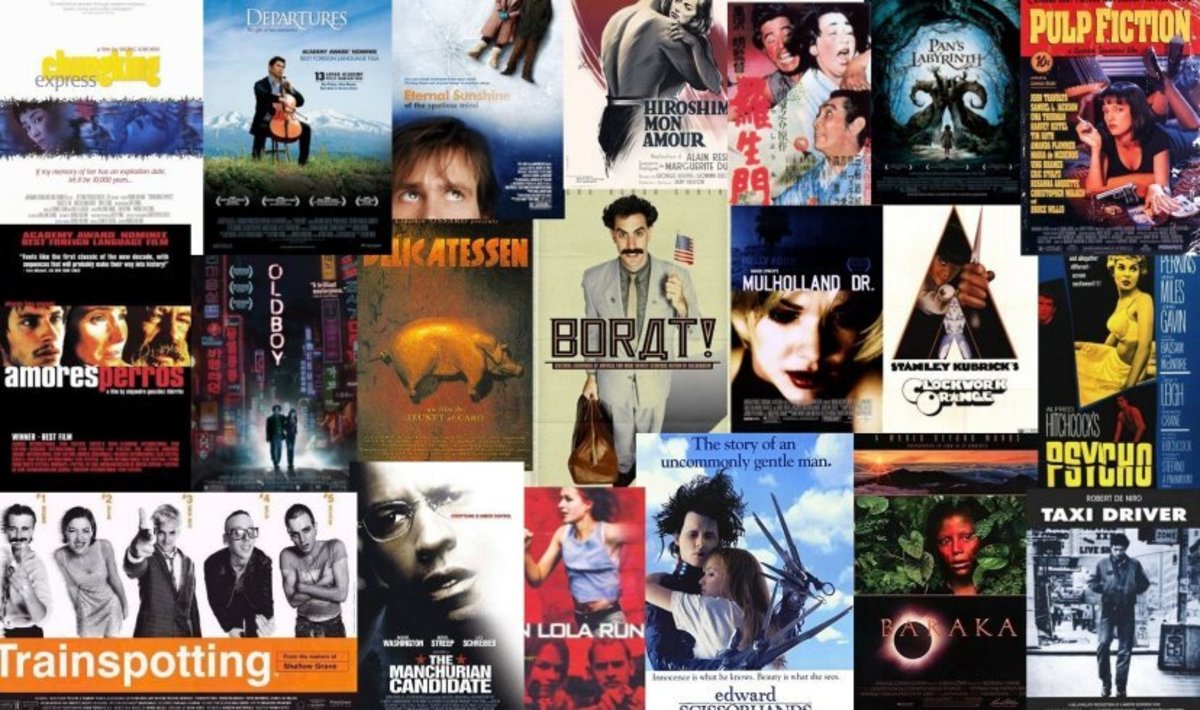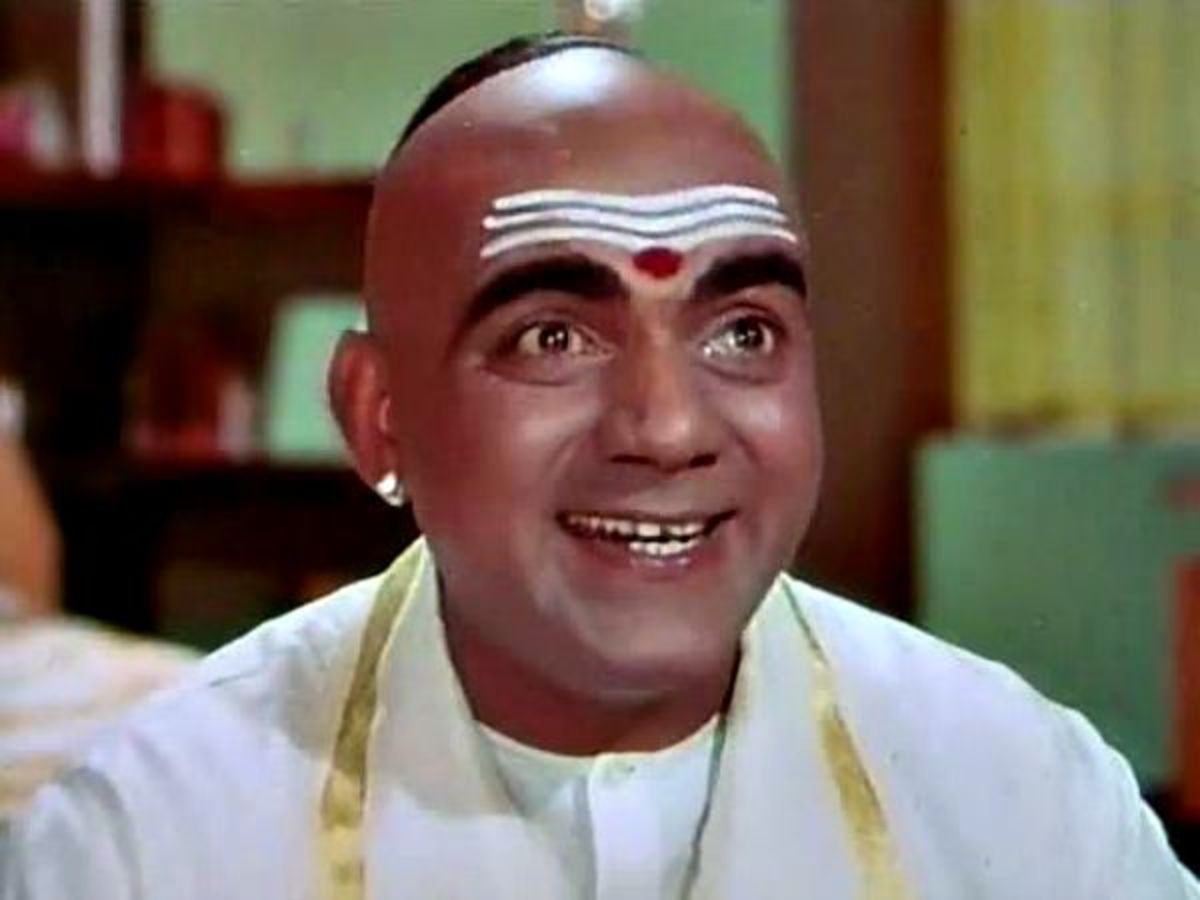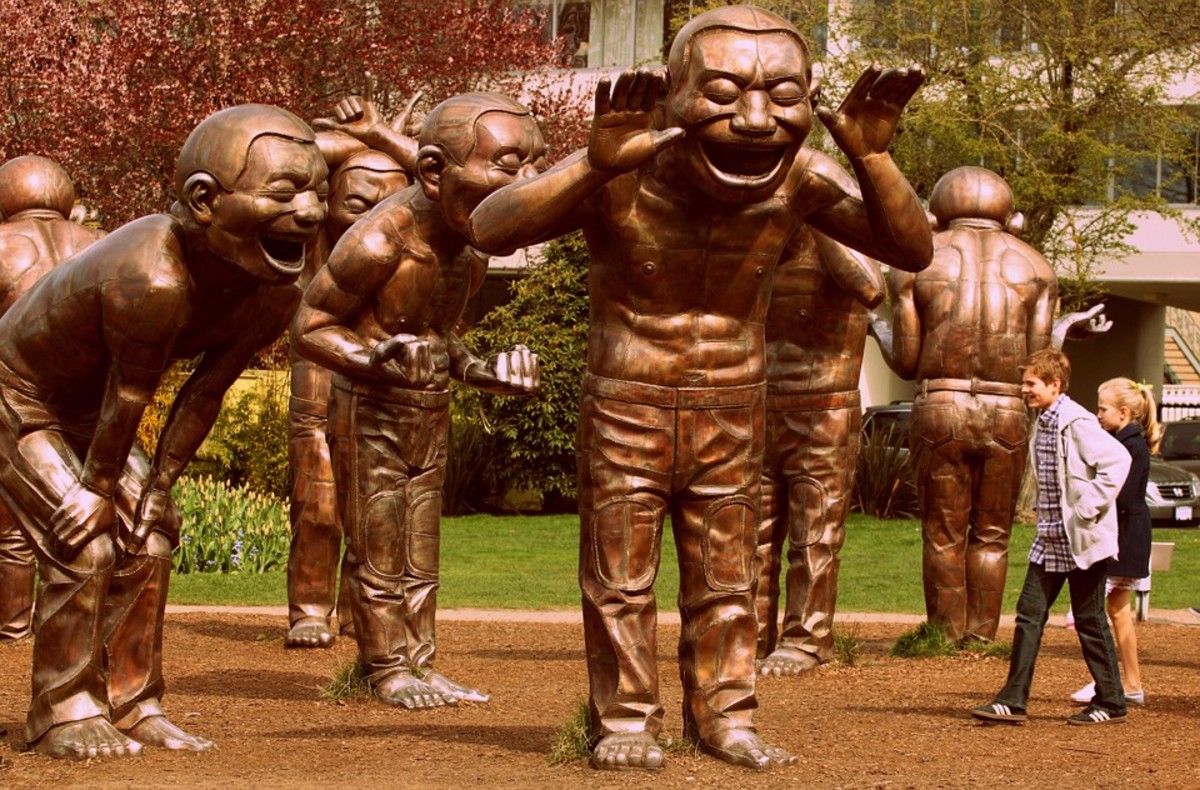Authentic Comedy Versus the Merely Comic in Film: A Short Discussion

Comedy and the Comic
I think the first thing we should do is distinguish between a film that is, actually, an authentic comedy, and a movie, either calling itself a "comedy," or a film that does not call itself a comedy, yet has "comic" or "comedic moments" in it.
Whaaaaaaaaaaaaaaat??????????
Since we are talking about movies, I am going to skip several steps of argumentative development to take issue with the notion of "character growth" and "arcs."
You see, the Internet seems to have something of an obsession with the necessity, or at least, the extreme desirability of "character growth" or "arcs" in movies. The Net, almost universally, seems to believe that a movie's events are rendered meaningless, unless the film's main characters have changed in some way, grown, "learned something," or some such.
I'm going to skip several more steps to simply say that, for the most part, I am still thinking this over with regards to all other genres of films. But my mind is firmly made up, for the present, with regard to one particular category of film: the comedy, or as I call it, the "authentic comedy."
Now, in my contrarian point of view, in order for a movie to be an authentic comedy, there must be NO "character growth," or "arc" of the central characters. This is because "growth" undermines the joke that a movie may be trying to make. Growth makes un-funny a movie that might have been funny, had it not been ruined with sentimentality.
I know that none of this makes sense yet, but bear with me.
The first thing I want to say, here, is that there is a difference between a film that has a central joke in it, that is manifested across the breadth of the running time of the film --- and a film that merely calls itself a "comedy," without a central joke, but has "comic" or "comedic moments" sprinkled throughout.
I know that still doesn't make sense.
Take the movie, Last of the Red Hot Lovers (1972). This is a film, starring Alan Arkin, which I call an authentic comedy.
It's about a guy who uses his mother's apartment in "The City" to try to arrange an extramarital affair, to spice up his humdrum life, as he is suffering the usual "mid-life crisis," and all that.
He's tries to make it happen with three different women, one after the other. He fails miserably.
The last scene of the film shows Arkin, in a telephone booth, trying to persuade his wife to come to the apartment for a romantic rendezvous, as it were, with him. The camera pans outward, as we hear his efforts at persuasion become increasingly strained and desperate.
It seems a reasonable guess that his wife is not going to answer that "booty call," as it were.
You see? That's the joke! That's funny!
Alan Arkin can't even get "laid," so to speak, by his own wife!
He sought to have an extramarital sexual affair to spice up his life. Failing that, in desperation he turns to his wife for sexual gratification --- so as to not completely waste his mother's vacant apartment.
Now, during the course of that film there are comic moments. But they serve the central joke. None of these comic moments are, in themselves, central.
Does that make sense?
Now then, had Arkin's character actually experienced "growth" or an "arc," the movie would not have been intrinsically funny, despite the presence of individual comic moments.
You see, in that case, these comic moments, then, would have become ends in themselves, rather than means.
But since Last of the Red Hot Lovers is an authentic comedy, the comedic moments are properly means of delivering the central joke.
Does that make sense?
So, for a film to be an authentic comedy, it must have a central joke. And its comic moments must be means --- rather than ends --- to deliver the central joke.
If Alan Arkin's character had become a "better person," blah, blah, blah..., at the end of the movie, it would not have been an authentic comedy. It would have been a mere "rom-com." The film would have been robbed of its central joke, or any central joke.
What makes a film an "authentic comedy," which is to say, intrinsically funny, then, is the stubborn dysfunction of the protagonist(s).
So that's the third thing.
For a film to be an authentic comedy, it:
- must have a central joke
- must have individual, comic moments that are, collectively, means to deliver the central joke
- must be ultimately indicative of the stubborn dysfunction of the protagonist(s).
Now let us briefly consider the film Identity Thief (2013).
The film stars Jason Bateman and Melissa McCarthy.
Now, Jason Bateman starts off as a good man in this film (as usual), and ends up a slightly better man, if that's possible, by the end of the film. That's not funny!
Melissa McCarthy does play a criminal, technically. However, because she is Melissa McCarthy, she plays the criminal with the "heart of gold," and all that. The only reason she became a criminal at all was because she had a hard home life, in which she didn't get enough love and all that, blah, blah, blah...
But now that she has Jason Bateman and his beautiful family in her life, her heart is full of optimism, love for her fellow man, and hope for the future, blah, blah, blah... That's not funny either.
This movie has its "comic" or "comedic" moments, but it is not an authentic comedy because there is no persistent dysfunction. There can be no persistent dysfunction, where there is character growth.
In my review of Identity Thief, I made suggestions as to how the film could have been rendered into a proper comedy, as opposed to a "rom-com."
By the way, sentimentality is not funny, because it, too, undermines or wipes out dysfunction on the part of the protagonist(s).
I ask you: What persistent dysfunction can survive in the face of character growth or an "arc," in which the main character becomes a better person at the end of the movie than he was at the start?
Thank you for reading!








